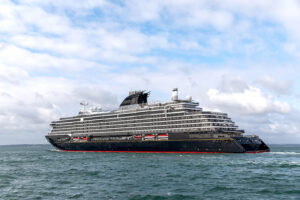WOBO thanks IFSEC & FSM for a sample of their news and updates
Resident engagement fundamental to new Code of Practice for Remediation of Residential Buildings
Proper consideration of residents’ needs is the top priority of the government’s Code of Practice for the Remediation of Residential Buildings published in late July, as Ron Alalouff reports.
The code of practice concerns the remediation of buildings and focuses on work that is needed to mitigate fire safety risks caused by external wall systems, as this type of work can have a significant impact on residents’ homes and lives. The code applies whether a building is fully or partly occupied, or temporarily unoccupied.
The code states that projects should set out clearly defined and recorded roles and responsibilities for parties who are in any way responsible for the safety, management, assessment, design or construction of a residential building, and/or have a duty in relation to the remediation project and work.
As the code states: “The management of buildings and remediation projects is a complex undertaking. The roles and responsibilities involved should be clearly identified and understood to improve communication, efficiency, accountability and execution.”
Residents’ experiences…..ifsecglobal.com/fire-news/resident-engagement-fundamental-to-new-code-of-practice-for-remediation-of-residential-buildings

Non-compliant fire resisting panels delayed launch of world’s newest luxury cruise ship
A number of ships around the world – including the world’s newest luxury cruise ship – have been affected by the discovery of potentially faulty fire resistant panels.
Helsinki-based Paroc, which manufactures the non-combustible stone wool panels, has recalled them after identifying “certification issues
According to the Financial Times, the company has identified 45 ships in operation with the non-compliant panels. The planned launch in early July of the 248-metre Explora I – the world’s newest luxury cruise ship due to be delivered to cruise operator MSC – was postponed at one day’s notice and took place a few weeks later.
IFSEC Insider contacted Paroc on a number of occasions, but they were unwilling to tell us:
- From which product/products had the certification been withdrawn?
- Which test standard(s) did the products fail?
- Had the same products previously passed the same test standard(s), or has the test standard been changed?
- The reason for the withdrawal of certification?
A Paroc spokesperson did, however, make the following statement:
“We recently identified a certification issue with some of our products. We have suspended the distribution and sales of these products, and have alerted the relevant regulatory authorities. In parallel, we recalled the products and notified our customers. We are working closely with regulatory and government authorities, shipbuilders and other stakeholders to address this issue.”
Fire safety test requirements…ifsecglobal.com/fire-news/non-compliant-fire-resisting-panels-delay-launch-of-worlds-newest-luxury-cruise-ship

Façade engineering specialists join forces on updated fire safety guidance
THE CENTRE for Window and Cladding Technology’s Technical Committee and The Society of Façade Engineering’s Fire Committee have issued updated guidance to provide greater clarity on the fire safety requirements for cladding systems and external walls.
Back in November 2018, the Government announced changes to the Building Regulations in order to implement the ban on the use of combustible material in the external walls of certain high-rise buildings in England.
Issue 2 of the free guidance document has been produced following a general review and in response to changes to the Building Regulations and Approved Document B guidance published by the Department for Levelling Up, Housing and Communities in June last year.
This updated guidance proposes a “practical and pragmatic interpretation” where conflicting interpretations have already been identified or where the potential for conflicting interpretations may be possible. Importantly, the guidance is not intended to ‘bypass’ the amendments to Building Regulation 7, Requirement B4 or the guidance contained in Approved Document B.
The new document is based on the “best knowledge available” at the time of publication. Due to the continuing development of policy and Government guidance, it should be read in conjunction with the relevant current Government guidance on ‘the ban on combustible materials’.
Maintained and revised…fsmatters.com/Facade-specialists-update-fire-safety-guidance

Industry Competence Committee appointed by Health and Safety Executive
There’s no doubt that this is a pivotal juncture for the built environment industry. Significant improvements in competence and standards are crucial for the future of the design, construction and management of buildings in England.
The ICC’s formation is a requirement of the Building Safety Act 2022.
This requirement came out of lessons from the Grenfell Tower tragedy and Dame Judith Hackitt’s ‘Building a Safer Future’ report produced as a result of the Independent Review of Building Regulations and Fire Safety.
In essence, a lack of skills, knowledge and experience within the built environment sector was identified as contributing to poor safety and standards in buildings.
Residents must be able to feel safe – and, what’s more, be safe – in their homes. Competence is crucial to achieve this. Anyone involved in design or building work must be competent to do their job properly and comply with the Building Regulations to ensure safe and high-quality structures.
Members of the ICC..fsmatters.com/HSE-appoints-Industry-Competence-Committee
